Iran’s Interest Section In Washington Accused Of Corruption
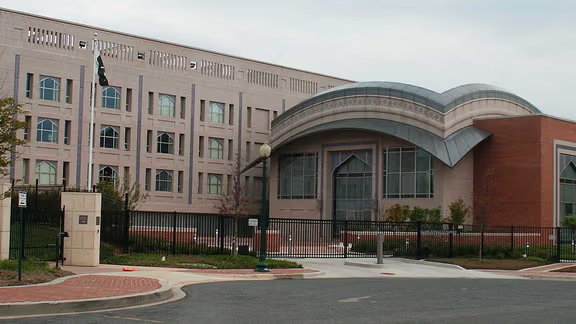
Iran’s Interests Section in Washington DC has been accused of corruption and one of its staff now faces prosecution.

Iran’s Interests Section in Washington DC has been accused of corruption and one of its staff now faces prosecution.
A political activist has told Iran International that Manouchehr Jafarzadeh is being prosecuted for charging extra fees for consular services.
Activist Siamak Aram said personnel of the office ask for cash in return for consular services.
According to Aram, the investigations are underway to get more information about the illegal act by Jafarzadeh; however, there are possibilities of systematic corruption to conduct money laundering.
Earlier this week, Iran's chief justice claimed he is battling corruption in government bodies.
In a televised interview aired by the state broadcaster IRIB Wednesday evening, Gholamreza Mohseni-Ejei said he and the organizations under his supervision would never shut their eyes to corruption and infringements of the law, and in some cases their actions have upset the government of President Ebrahim Raisi and caused complaints.
Last year, the former chief of Iran's state television, Mohammad Sarafraz accused the government and banking system of systematic corruption that has led to vast income gaps among Iranians.
Sarafraz accused the IRGC and the intelligence agencies of “systematic corruption which is likely to land the country in deep trouble,” saying that most of what the intelligence agencies and the IRGC do in Iran are illegal, but they can get away with it as no one is in control. Meanwhile, none of these organizations assume responsibility for the instability their actions create.

As part of efforts to put pressure on Iran’s outspoken Sunni leader Mowlavi Abdolhamid, the government has arrested several people from his inner circle.
According to local sources close to the prominent Sunni cleric, among those arrested is Abdol-Nasir Shahbakhsh, his grandson whom security agents arrested "violently" on the street and took him to an unknown location.
Shahbaksh works for the Makki Mosque, where Abdolhamid delivers his speeches. He was recently summoned by interrogated by the intelligence ministry in Zahedan, a Baluch-majority city and capital of southeastern Sistan-Baluchistan province.
The Makki mosque in Zahedan has been a center of resistance to the government since popular protests began in September 2022. This is where Abdolhamid delivers his weekly sermons, openly criticizing the regime headed by Supreme Leader Ali Khamenei.
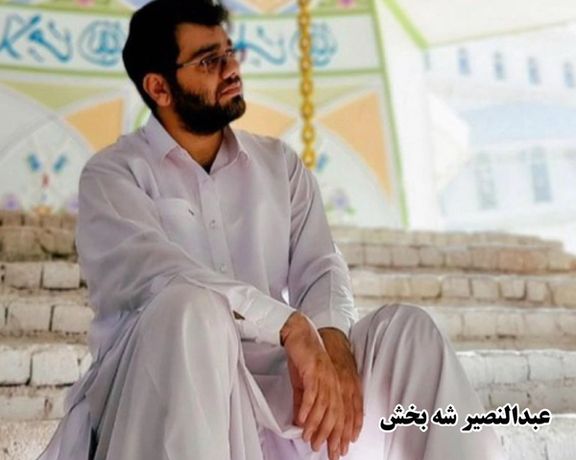
Haalvsh website, which covers developments in Sistan-Baluchestan, said that two other people who were arrested on Tuesday were cameramen of the mosque, identifying them as Osameh Shahbakhsh and Hamed Mohammadi-Nik.
Security agents also raided Osameh Shahbakhsh’s home, assaulted members of his family and confiscated his electronic devices.
On Saturday, June 24, a member of the mosque’s security personnel, Abdolvahed Shahlibar, was also summoned by the judiciary and was arrested afterwards.
Shir-Ahmad Shirani, the chief editor of Haalvsh, told Radio Farda that the arrests seem to be the regime’s reactions to the news of a botched assassination attempt against Abdolhamid. He added that several other people have been called in by the authorities or arrested over the publication of the report.
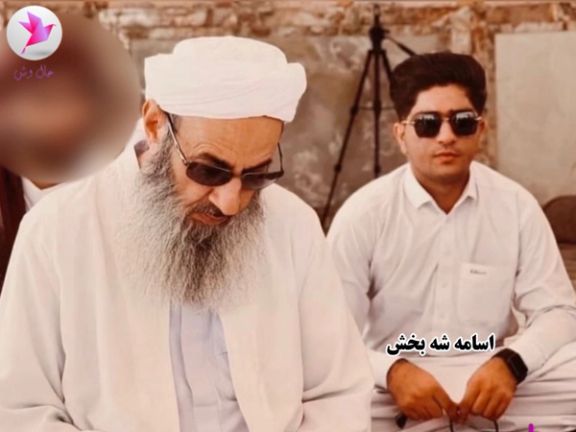
The arrests came a few days after reports surfaced that the Revolutionary Guard’s intelligence arm had assigned a hitman to poison and kill the vocal Sunni cleric of Zahedan. The security guards at Makki Mosque arrested a man pretending to be a religious student who allegedly wanted to assassinate the Sunni leader.
According to the report, the suspect admitted that he received a salary of 150 million rials ($300) per week since the beginning of his operation.
Officially known as Sheikh Abdolhamdid Esmailzehi, the Sunni cleric is widely popular because of his willingness to challenge Khamenei’s absolute authority. In addition, the country's Sunni minority are heavily persecuted and the cleric has long been an advocate of minority rights, to the ire of the regime.
The prominent religious leader has been relentless, making fiery speeches against the heavy crackdown and killing of protesters, and calling government actions "felony".
In November, the outspoken Sunni Imam said women, ethnic and religious groups, and minorities have faced discrimination after the establishment of the Islamic Republic in 1979. He also called for an internationally monitored referendum in Iran, arguing that by killing and repression the government cannot push back a nation.
Abdolhamid also said earlier that officials should not be clerics, noting that not all Iranian people are "religious" and as such do not accept religious authority.
Last Friday, June 23, was the 38th consecutive week that people of the province held demonstrations against the government following the death in custody of Mahsa Amini in September, but the rallies were significantly larger following calls for protests by Sunni clerics and activist groups as the regime seems to have intensified its campaign against their religious leader Mowlavi Abdolhamid.
On Sunday, local media revealed the identities of at least 14 Baluch citizens arrested by the security forces, including four children.
Earlier in the month, the office of the outspoken Sunni leader of Sistan and Baluchestan province said the Ministry of Intelligence prevented him from attending Hajj pilgrimage.
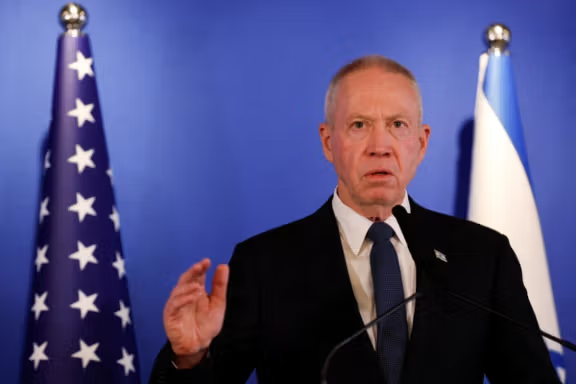
Israel has seized millions of dollars worth of digital funds intended for use by Iranian-backed Lebanese group Hezbollah and the Quds Force arm of the Revolutionary Guards.
Defense Minister Yoav Gallant made the announcement on Tuesday, revealing that Israel has seized digital wallets linked to IRGC and Hezbollah.
His ministry said that since the start of this year, "Hezbollah, Quds Force (IRGC’s extraterritorial force) and Syrian operatives have used digital currencies to receive funds from third parties via illegal transactions”.The Defense Ministry said it had also thwarted the transfer of millions of dollars to these operatives.
Speaking at a conference hosted by the ministry’s National Bureau for Counter Terror Financing (NBCTF), Gallant said, “I issued an order that enabled the confiscation of said funds, as well as their transfer to the State of Israel. In doing so, we have effectively cut off the flow of terror funds via this channel.”
“A few days ago, an extensive and precedent-setting operation — to expose a route for financing terror with digital currencies — was wrapped up. This is the first incident of this magnitude, in which an infrastructure led by Hezbollah and the Iranian Quds Force that transferred millions of dollars to be used by terror elements was thwarted,” he added.
He said that the NBCTF developed new tools with the Mossad spy agency, the IDF’s Military Intelligence Directorate, the Israel Police, and other bodies, in order to combat financing of terror groups using cryptocurrency.
Noting Iran’s involvement, he said, “Whoever finances terror, or maintains a financial relationship with terror operatives, must know that he is a target, just like anyone who directs terrorism."
“As you can see, this time too there is a clear line behind the terror [financing] moves that originate in Iran. Iran is the financier, trainer, and spreader of terrorism against Israel and many countries around the world, both directly and through its proxies at the borders,” Gallant said.
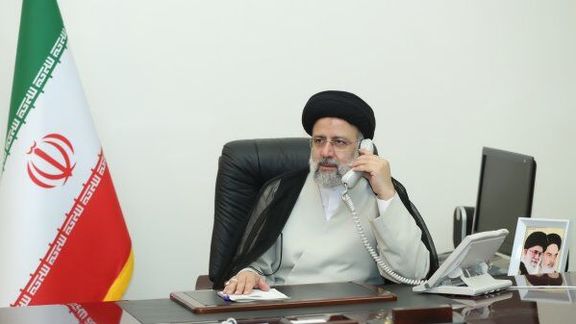
The Iranian President says developing ties with Qatar will boost regional and international cooperation between the two countries.
Ebrahim Raisi made the comments in a phone conversation with Qatari Emir Sheikh Tamim bin Hamad Al-Thani who had called to felicitate him on Eid al-Adha.
Raisi also appreciated the efforts of the Emir and Prime Minister of Qatar in advancing joint plans and agreements with the Islamic Republic of Iran.
Al-Thani congratulated the Iranian President and the Iranian people on Eid al-Adha and expressed willingness to boost economic cooperation.
Last week, European Union foreign policy official Enrique Mora and Iran’s chief nuclear negotiator Ali Bagheri-Kani held meetings in Qatar in what many believed to be related to issues pertaining to disputes with the United States.
Since September, the US has demanded an end to Iran’s weapons supplies to Russia that has included hundreds of Kamikaze drones used against Ukrainian military and civilian targets.
In February, US Special Envoy for Iran Robert Malley met with the Qatari foreign minister in Washington over efforts to kickstart the stalled talks to revive the 2015 nuclear deal, Qatari sources said.
Late in January, Al Thani visited Tehran where he delivered messages from world powers that are party to the Joint Comprehensive Plan of Action, particularly the US which does not have direct contact with the Islamic Republic.

In a rare public criticism, Iran’s Supreme Leader has admitted that the nation has lost trust in the judiciary, blaming it on malpractice and media representation.
“There is a small minority who abuse their position and tarnish the image of the judiciary in the eyes of the people,” Khamenei said in a revealing meeting with judiciary officials Tuesday.
He called on authorities to fight corruption within the judicial system and warned that "corruption is contagious". He said: "When corruption enters a system, this disease spreads. It is increasing day by day."
Khamenei said the media is partially to blame, tarnishing the judiciary's reputation further, refusing to acknowledge the heavy-handed and brutal punishments it has been handing down to civilians since the protests began in September in the wake of Mahsa Amini's death in morality police custody.
Khamenei's words contradict the fact that he controls the religious judiciary that is only accountable to him and plays the role of both prosecutor and judge. The courts in Iran are not independent, but part of the large bureaucracy known as the Judiciary, whose head is appointed by the Supreme Leader,
As “one of the main pillars in the establishment of the Islamic republic,” he said instability in the judiciary can lead to disruptions in the entire regime as he urged his inner circle to tighten up the flailing system.
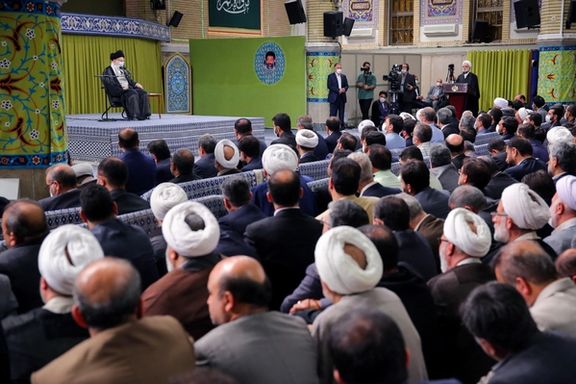
Political pundit Rouhollah Rahimpour told Iran International that the main duty of the judiciary has become defending the regime against the people and cracking down any voice of dissent.
He called the distrust of the judiciary a natural consequence "when the judicial system does not pursue justice" and only works as a tool in the hands of the regime to stifle criticism and quash protests.
The regime used overwhelming force with military weapons in its crackdown on the protests since September, killing more than 500 civilians and arresting tens of thousands more. Hundreds of other protestors suffered hospitalization and permanent injuries, including the loss of eyes when shotgun pellets were fired at the faces of demonstrators.
After the wave of nationwide protests which has still yet to subside, the Iranian regime has embarked on a wave of executions which has seen dozens of prisoners hanged this year.
Iran's Chief Justice Gholamhossein Mohseni Ejei claimed Monday that scores of Iranians only took part in protests due to foreign influence, undermining the strength of the Woman, Life, Freedom movement which has seen hundreds of thousands of Iranians calling for the end of the brutal dictatorship.
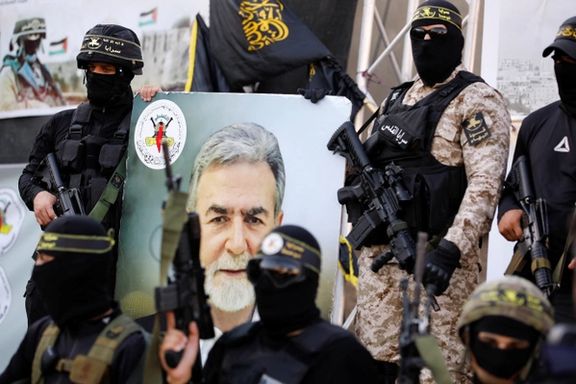
The Palestinian Islamic Jihad (PIJ) is buying weapons and loyalty in the West Bank using Iranian money, a Palestinian security source said.
The PIJ has established several armed cells and recruited dozens of gunmen in the northern West Bank, specifically in Jenin and Nablus. “The PIJ has become a dominant force in the northern West Bank, largely thanks to the financial aid it receives from Iran," a source told Israel's Jerusalem Post. “Islamic Jihad is using Iranian money to buy weapons and loyalty in the West Bank [and] the organization is paying high salaries to its members.”
Palestinian Islamic Jihad has stepped up its activity over the last year, largely thanks to extra funding from Tehran, including an incident in April in which dozens of rockets were launched in a cross border attack on Israel from Gaza, Syria and Lebanon. Last August, the PIJ unleashed almost 2,000 rockets and mortars in three days of fighting.

The PIJ, like Hamas, which controls the Gaza Strip, have become full-fledged Iranian proxies, receiving Iranian funding, training, sophisticated equipment, and, most importantly, Tehran’s instructions on their confrontation with Israel. Last year, then defense minister Benny Gantz claimed that the PIJ was receiving tens of millions of dollars from Tehran. This week the group's leaders met with President Raisi, among others, in a show of force against Israel.
The evolution from guerrilla-terrorist militias to armies results from a long process initiated by Tehran with the active assistance of Hezbollah in Lebanon. The escalating events in recent months have shown the ongoing coordination and consultation among the top leaders of Hamas, Hezbollah and PIJ in Beirut, Damascus, and Tehran, with the aim of creating a united front facing Israel from Iran-supported Lebanon, Syria, Gaza, and the West Bank.